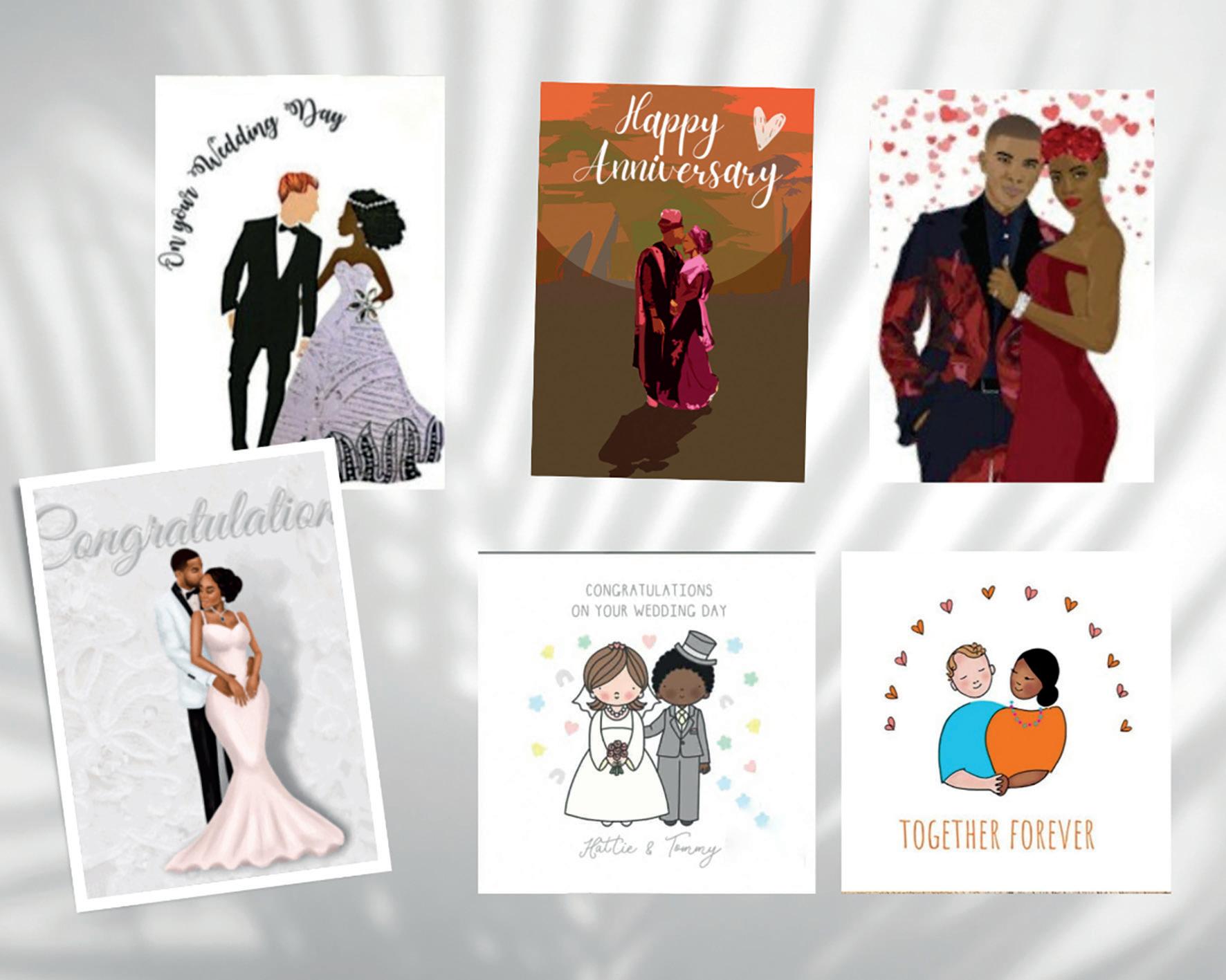
3 minute read
Retail Interview: Black

Celebrating diversity

Directors Elise Markham and Tanya Luke explain how The Black Card Company supports the black community and creatives
Tell us the story behind the company. The Black Card Company was launched in 2020 to acknowledge and celebrate diverse greeting card and gift wrap designs. As black women and card designers, we knew that our community rarely saw cards that represented us or our culture. This is what drove us to become greeting card designers - we are passionate about positive representation. We think it’s important, especially for children and milestone events.
We knew other diverse card brands which, like us, had limited reach. This lack of visibility galvanised us to create our own multi-vendor platform and The Black Card Company was born. We offer customers an extensive range and style of diverse cards and gift wrap, authentically designed by more than 50 brands.
All communities should be seen and celebrated when we connect with each other through cards. We are doing our bit to help make this happen. How many cards do you have online and what categories do they cover? We have more than 2,000 cards online covering 30 categories from anniversary to weddings and including Kwanzaa [an annual celebration of African-American culture from December 26 to January 1]. Tell us about your pop-up shops. Since launching we have been invited to be the primary card and gift wrap provider by some great pop-up shops. In spring we had a bank holiday weekend placement in Urban Outfitters clothing shop in Westfield’s Stratford shopping centre. We spent three months in the summer at Book & Kulture, a book and gift shop at Wembley Arena. Our longest and ongoing placement is at Pop-up United, a gift shop in Brent Cross Shopping Centre in North London. We first started there for Christmas last year, were invited back early this year and have been there ever since.
We have been privileged to cover special cardbuying seasons such as Mother’s Day, Father’s Day and Christmas at these shops, which was well received by the customers. This has been great exposure for our brand and has allowed vendors to showcase their products in a shop, sometimes for the first time. Explain your business model. Our business model is that of a multi-vendor marketplace. Each brand runs their independent shop on our platform. What is your selection criteria for products? For us, the designer should identify as black. Our customers want authentic cards reflecting their community, and black creators are best able to provide this. Also, our aim is to amplify the visibility of black creators who often have less exposure, resources, funding, or the infrastructure of other communities.
We select vendors who have strong card designs and concepts. We’ve been amazed at the range of creativity - from inspiring art to dextrous wordsmiths. The Henries introduced a diversity category for the first time last year - do you think the card industry is starting to recognise the need for cards such as those you sell? The mainstream greeting card industry fell far behind other creative industries in becoming inclusive. After the Black Lives Matter protests in 2020, diverse card designers started being invited into mainstream spaces. The Henries diversity category and similar initiatives followed soon after. This encouraged some mainstream card designers to create a range of diverse designs.
Things are much improved. Some of our vendors are now in mainstream spaces, have won competitions and an international contract! However, diverse cards on the shop floor or on a platform are just the customerfacing part of the industry. The industry itself should also be diverse and inclusive at all levels. This way it can properly embrace different perspectives.
Diverse cards are now more widely available but it’s important to note that they generally come in two categories. One is generic: e.g. with a diverse group of people in it, celebrities of colour, cultural phrases or ethnic patterns. The other is specific: e.g. an inter-racial wedding card or a black princess card.
Mainstream spaces tend to carry more of the generic diverse cards. Our platform is a place where we can meet the specific needs of our customers. What is your bestselling product? Women wearing African headwraps and wedding cards. If you could choose the cards people sent you - which would you choose to receive? A well-chosen card says that you care – one that accurately represents the recipient shows that you see and value who they are.










